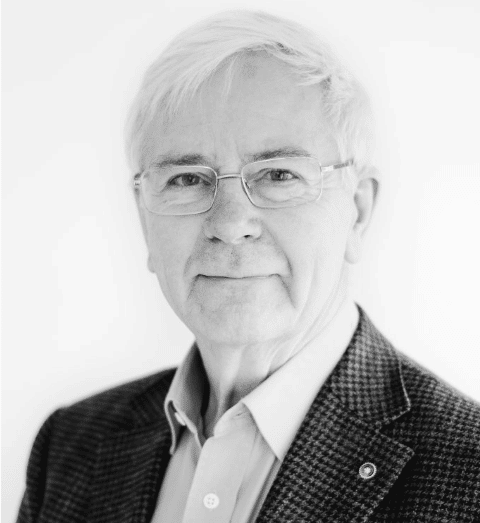Bertil Karlmark is a doctor who has dedicated a major part of his professional life to clinical trials. Among other things, he has taught clinical trial and Good Clinical Practice (GCP) for more than 30 years. He has also been a medical director at both major and smaller pharmaceutical companies and has worked as a consultant in clinical trials at many companies and institutions. But above all, he has been with us from the very moment Scandinavian CRO was founded.
– I already knew Ingrid Martling, SCRO’s first employee. She called and wanted to meet me to discuss a new business idea. We sat in a restaurant in Uppsala for hours and talked – Ingrid, Ulrika, and I. And that’s the way it started, Bertil says.
Over the years, there have been many discussions and meetings. Bertil has been an extremely valued individual and medical expert, and still is – knowledgeable, experienced and humble – and a major asset for SCRO, says Ulrika Hammarström Lüllmaa, CEO of SCRO.
– Bertil is an important role model in clinical trials. He has been a great support and a fantastic sounding board for both Ingrid and me. I think I’m talking for both of us when I say he has a very special place in our hearts, says Ulrika.
Bertil adds that they haven’t always followed his advice, but thinks that things have turned out well anyway. This year he celebrates his 80th birthday. He works less, but is still active. He says he is glad he did not become a specialist and end up in a niche, but instead had the chance to get insight into many different medical areas. He has also met many different people over the years, within both the corporate- and academic spheres. He has not had a role model himself, but instead learned a lot from his many personal contacts.
– I have always admired people who know what I do not know, said Bertil. I have learned a lot as a result. And I have had to research in preparation for all the lectures and courses I have held over the years. I was constantly updated as a result. I usually say, ”you learn as long as you have students”.
He is pleased that he has had the chance to follow SCRO on their journey and that the company has gone so well. Especially that the company only involved women in the beginning. He thinks SCRO is good at what they do and they have always been responsive to customer needs. This is a clear success factor. The fact that they have headquarters in Uppsala, close to research and hospitals, is also very positive. SCRO has managed to grow in a tough time when several clinical trial initiatives were forced to close down and move abroad.
– We cannot prevent business from moving. But to have a chance, Sweden must continue to stick to high quality so that we can assert ourselves into the future. It may be a well-worn concept, but you must never have to compromise on quality, says Bertil.
Knowledge of quality is one of the most important components, according to Bertil. It’s about having procedures to steer by, and checking out and reporting any deviations – large as well as small, and adjusting to correct them, now and in the future. Nobody can check his own actions in a proper quality system. You must always have someone else who evaluates what you do. Academic research is way behind drug research in that respect.
He is still an enthusiast who is dedicated to clinical trials. For the last four years, he has been working as a guide at the museum of Medical History in the Ulleråker area of Uppsala, and is editor of their yearbook, which will celebrate its tenth anniversary this year.
He had planned to throw away all the material he had collected after over 30 years of teaching, but he wasn’t allowed to – Ulrika wanted it. The files are now in SCRO’s office in Uppsala. This is the legacy after Bertil, according to Ulrika.
– So now I know where to look if I need something, says Bertil. It’s one reason to look in at the office sometimes and I’m so happy to do that. I have always felt so welcome at SCRO and we have so many exciting things to talk about.

